ExploWare wrote:I seem to loose WiFi connectivity over time on several modules.
Anyone else recognizes this?
How long after the restart, and what does the log say?
@absinth84 , good job
pillarama wrote:
I went searching and found the Belkencorp Github. There seems to be a lot of useful stuff on there including what looks like I2C drivers for several chips there. Could these be useful?
https://github.com/bekencorp?tab=repositories
https://github.com/bekencorp/bk7231_rtt_sdk/blob/master/drivers/drv_iic.c
https://github.com/bekencorp/bk7231u_rtt_sdk/blob/master/drivers/drv_iic.c
I've also seen something leading to full Tuya I2C implementation but we seem to have only headers:
Code: C / C++
So maybe your option is better.... rt_i2c_bit_add_bus? A part of RTos?
Ah, the backend of this driver is here:
https://github.com/bekencorp/bk7231u_rtt_sdk/...7a87a920b918/rt-thread/components/drivers/i2c
We would have to port it....
but I just realized. Maybe there is indeed an I2C driver in the very beken SDK we are using?
https://github.com/tuya/tuya-iotos-embeded-sd...1t_os/beken378/func/user_driver/BkDriverI2c.h
Code: C / C++
Quote:
bk_i2c_t port; /**< Platform I2C port that is connected to the target I2C device, - e.g. BK_I2C_1 */
EDIT: it seems to be missing some types:
In file included from ../../../apps/OpenBK7231T_App/src/new_pins.c:61:0:
./beken378/common/../../beken378/func/user_driver/BkDriverI2c.h:70:9: error: unknown type name 'platform_i2c_bus_address_width_t'
typedef platform_i2c_bus_address_width_t bk_i2c_bus_address_width_t;
^
./beken378/common/../../beken378/func/user_driver/BkDriverI2c.h:72:9: error: unknown type name 'platform_i2c_speed_mode_t'
typedef platform_i2c_speed_mode_t bk_i2c_speed_mode_t;
^
./beken378/common/../../beken378/func/user_driver/BkDriverI2c.h:74:9: error: unknown type name 'platform_i2c_message_t'
typedef platform_i2c_message_t bk_i2c_message_t;
^
./beken378/common/../../beken378/func/user_driver/BkDriverI2c.h:78:5: error: unknown type name 'bk_i2c_t'
bk_i2c_t port; /**< Platform I2C port that is connected to the target I2C device, - e.g. BK_I2C_1 */
Especially bk_i2c_t type, I will look for them
I've also found more low llevel api:
Code: C / C++
pillarama wrote:
BK7231 Pin layout:
PWM4 I2C CLK
PWM5 I2C DATA (Incorrectly labelled as PWM2 on the bottom of PCB)
How do you know it's labelled incorrectly?
EDIT:
W:\GIT\OpenBK7231T\platforms\bk7231t\bk7231t_os/../../../apps/OpenBK7231T_App/src/new_pins.c:115: undefined reference to `i2c1_open'
W:\GIT\OpenBK7231T\platforms\bk7231t\bk7231t_os/../../../apps/OpenBK7231T_App/src/new_pins.c:120: undefined reference to `i2c1_write'
W:\GIT\OpenBK7231T\platforms\bk7231t\bk7231t_os/../../../apps/OpenBK7231T_App/src/new_pins.c:127: undefined reference to `i2c1_read'
W:\GIT\OpenBK7231T\platforms\bk7231t\bk7231t_os/../../../apps/OpenBK7231T_App/src/new_pins.c:130: undefined reference to `i2c1_close'
collect2.exe: error: ld returned 1 exit status
make[2]: *** [application.mk:640: application] Błąd 1
make[2]: Opuszczenie katalogu '/cygdrive/w/GIT/OpenBK7231T/platforms/bk7231t/bk7231t_os'
make[1]: *** [Makefile:5: mp] Błąd 2
make[1]: Opuszczenie katalogu '/cygdrive/w/GIT/OpenBK7231T/platforms/bk7231t/bk7231t_os'
make: *** [Makefile:6: all] Błąd 2
So it's time to update makefile, I hope all references are available in SDK
EDIT: datasheet of some bk7231 module with information which pin is hardware I2C:
![[BK7231T] My HTTP server, configurator, MQTT support from Home Assistant [BK7231T] My HTTP server, configurator, MQTT support from Home Assistant](https://obrazki.elektroda.pl/3840970000_1647008624_thumb.jpg)



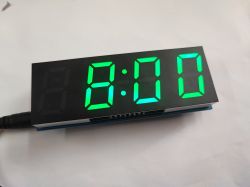
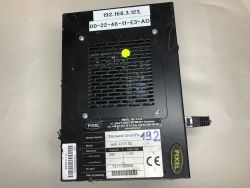
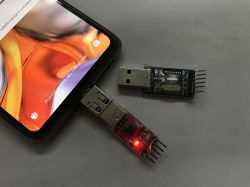


![[BK7231T] My HTTP server, configurator, MQTT support from Home Assistant [BK7231T] My HTTP server, configurator, MQTT support from Home Assistant](https://obrazki.elektroda.pl/6356023000_1647020624_thumb.jpg)
![[BK7231T] My HTTP server, configurator, MQTT support from Home Assistant [BK7231T] My HTTP server, configurator, MQTT support from Home Assistant](https://obrazki.elektroda.pl/1445077400_1647020644_thumb.jpg)
![[BK7231T] My HTTP server, configurator, MQTT support from Home Assistant [BK7231T] My HTTP server, configurator, MQTT support from Home Assistant](https://obrazki.elektroda.pl/4997479900_1647020709_thumb.jpg)
![[BK7231T] My HTTP server, configurator, MQTT support from Home Assistant [BK7231T] My HTTP server, configurator, MQTT support from Home Assistant](https://obrazki.elektroda.pl/8266113800_1647021264_thumb.jpg)
![[BK7231T] My HTTP server, configurator, MQTT support from Home Assistant [BK7231T] My HTTP server, configurator, MQTT support from Home Assistant](https://obrazki.elektroda.pl/8364630600_1647020794_thumb.jpg)
![[BK7231T] My HTTP server, configurator, MQTT support from Home Assistant [BK7231T] My HTTP server, configurator, MQTT support from Home Assistant](https://obrazki.elektroda.pl/1253291800_1647181419_thumb.jpg)
![[BK7231T] My HTTP server, configurator, MQTT support from Home Assistant [BK7231T] My HTTP server, configurator, MQTT support from Home Assistant](https://obrazki.elektroda.pl/4400981500_1647181454_thumb.jpg)
![[BK7231T] My HTTP server, configurator, MQTT support from Home Assistant [BK7231T] My HTTP server, configurator, MQTT support from Home Assistant](https://obrazki.elektroda.pl/4208858400_1647181488_thumb.jpg)
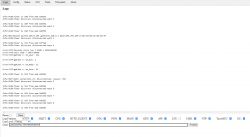
![[BK7231T] My HTTP server, configurator, MQTT support from Home Assistant [BK7231T] My HTTP server, configurator, MQTT support from Home Assistant](https://obrazki.elektroda.pl/9835376000_1647181698_thumb.jpg)
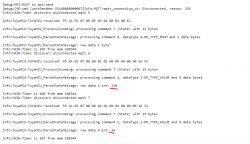
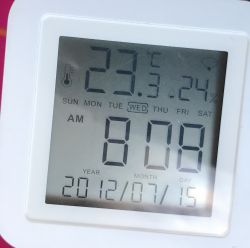
![[BK7231T] My HTTP server, configurator, MQTT support from Home Assistant [BK7231T] My HTTP server, configurator, MQTT support from Home Assistant](https://obrazki.elektroda.pl/9139906400_1647227919_thumb.jpg)
![[BK7231T] My HTTP server, configurator, MQTT support from Home Assistant [BK7231T] My HTTP server, configurator, MQTT support from Home Assistant](https://obrazki.elektroda.pl/9209822100_1647367687_thumb.jpg)
![[BK7231T] My HTTP server, configurator, MQTT support from Home Assistant [BK7231T] My HTTP server, configurator, MQTT support from Home Assistant](https://obrazki.elektroda.pl/4672107700_1647367691_thumb.jpg)
![[BK7231T] My HTTP server, configurator, MQTT support from Home Assistant [BK7231T] My HTTP server, configurator, MQTT support from Home Assistant](https://obrazki.elektroda.pl/4160651500_1647367694_thumb.jpg)
![[BK7231T] My HTTP server, configurator, MQTT support from Home Assistant [BK7231T] My HTTP server, configurator, MQTT support from Home Assistant](https://obrazki.elektroda.pl/1326367500_1647367697_thumb.jpg)
![[BK7231T] My HTTP server, configurator, MQTT support from Home Assistant [BK7231T] My HTTP server, configurator, MQTT support from Home Assistant](https://obrazki.elektroda.pl/8408065100_1647367704_thumb.jpg)
![[BK7231T] My HTTP server, configurator, MQTT support from Home Assistant [BK7231T] My HTTP server, configurator, MQTT support from Home Assistant](https://obrazki.elektroda.pl/5133318900_1646611728_thumb.jpg)
![[BK7231T] My HTTP server, configurator, MQTT support from Home Assistant [BK7231T] My HTTP server, configurator, MQTT support from Home Assistant](https://obrazki.elektroda.pl/9525674800_1646611730_thumb.jpg)
![[BK7231T] My HTTP server, configurator, MQTT support from Home Assistant [BK7231T] My HTTP server, configurator, MQTT support from Home Assistant](https://obrazki.elektroda.pl/1838375800_1647565665_thumb.jpg)
![[BK7231T] My HTTP server, configurator, MQTT support from Home Assistant [BK7231T] My HTTP server, configurator, MQTT support from Home Assistant](https://obrazki.elektroda.pl/9896050600_1647565667_thumb.jpg)
![[BK7231T] My HTTP server, configurator, MQTT support from Home Assistant [BK7231T] My HTTP server, configurator, MQTT support from Home Assistant](https://obrazki.elektroda.pl/9157675700_1647565670_thumb.jpg)
![[BK7231T] My HTTP server, configurator, MQTT support from Home Assistant [BK7231T] My HTTP server, configurator, MQTT support from Home Assistant](https://obrazki.elektroda.pl/3908994500_1647565674_thumb.jpg)
![[BK7231T] My HTTP server, configurator, MQTT support from Home Assistant [BK7231T] My HTTP server, configurator, MQTT support from Home Assistant](https://obrazki.elektroda.pl/6432463300_1647565684_thumb.jpg)
![[BK7231T] My HTTP server, configurator, MQTT support from Home Assistant [BK7231T] My HTTP server, configurator, MQTT support from Home Assistant](https://obrazki.elektroda.pl/1413311400_1647565686_thumb.jpg)
![[BK7231T] My HTTP server, configurator, MQTT support from Home Assistant [BK7231T] My HTTP server, configurator, MQTT support from Home Assistant](https://obrazki.elektroda.pl/9446415200_1647565688_thumb.jpg)
![[BK7231T] My HTTP server, configurator, MQTT support from Home Assistant [BK7231T] My HTTP server, configurator, MQTT support from Home Assistant](https://obrazki.elektroda.pl/6466997300_1647565689_thumb.jpg)
![[BK7231T] My HTTP server, configurator, MQTT support from Home Assistant [BK7231T] My HTTP server, configurator, MQTT support from Home Assistant](https://obrazki.elektroda.pl/4034480800_1647574592_thumb.jpg)
![[BK7231T] My HTTP server, configurator, MQTT support from Home Assistant [BK7231T] My HTTP server, configurator, MQTT support from Home Assistant](https://obrazki.elektroda.pl/5746841000_1647595542_thumb.jpg)
![[BK7231T] My HTTP server, configurator, MQTT support from Home Assistant [BK7231T] My HTTP server, configurator, MQTT support from Home Assistant](https://obrazki.elektroda.pl/3796437100_1647716443_thumb.jpg)
![[BK7231T] My HTTP server, configurator, MQTT support from Home Assistant [BK7231T] My HTTP server, configurator, MQTT support from Home Assistant](https://obrazki.elektroda.pl/9610335600_1647783159_thumb.jpg)
![[BK7231T] My HTTP server, configurator, MQTT support from Home Assistant [BK7231T] My HTTP server, configurator, MQTT support from Home Assistant](https://obrazki.elektroda.pl/3744611500_1647783204_thumb.jpg)
![[BK7231T] My HTTP server, configurator, MQTT support from Home Assistant [BK7231T] My HTTP server, configurator, MQTT support from Home Assistant](https://obrazki.elektroda.pl/7364496600_1647783244_thumb.jpg)
![[BK7231T] My HTTP server, configurator, MQTT support from Home Assistant [BK7231T] My HTTP server, configurator, MQTT support from Home Assistant](https://obrazki.elektroda.pl/8928935400_1647783317_thumb.jpg)
![[BK7231T] My HTTP server, configurator, MQTT support from Home Assistant [BK7231T] My HTTP server, configurator, MQTT support from Home Assistant](https://obrazki.elektroda.pl/7818214400_1647783330_thumb.jpg)
![[BK7231T] My HTTP server, configurator, MQTT support from Home Assistant [BK7231T] My HTTP server, configurator, MQTT support from Home Assistant](https://obrazki.elektroda.pl/1448417000_1647835381_thumb.jpg)
![[BK7231T] My HTTP server, configurator, MQTT support from Home Assistant [BK7231T] My HTTP server, configurator, MQTT support from Home Assistant](https://obrazki.elektroda.pl/8936775500_1647835454_thumb.jpg)
![[BK7231T] My HTTP server, configurator, MQTT support from Home Assistant [BK7231T] My HTTP server, configurator, MQTT support from Home Assistant](https://obrazki.elektroda.pl/1904705300_1647835477_thumb.jpg)